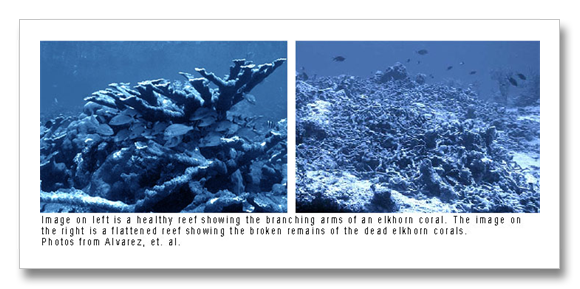The study reviewed nearly 500 surveys of 200 different reefs all cross the Caribbean between 1969 and 2008. The causes are varied and all are directly attributable to climate change. This discovery is devastating beyond belief. We new this could happen on a warmer planet, and we new that our coral reefs were being impacted presently, but this was not supposed to happen until some point in the impersonal distant future.
The marine biologist who study reefs define their complexity by their rugosity, or how wrinkled or rough the reef is. A more complex reef is more wrinkled than a less complex reef, and the greater the complexity, the greater is the amount of and number of species a reef can support. What this team of scientists have found is that structural complex reefs have been nearly completely wiped out across the Caribbean in the last 40 years. In 1979, complex reefs accounted for 48% of the total number off reefs, in 2008 they accounted for just 2%.
Alvarez-Filip et. al., Flattening of Caribbean coral reefs: region-wide declines in Architectural complexity, Proceedings of the Royal Society B, June 2009.

